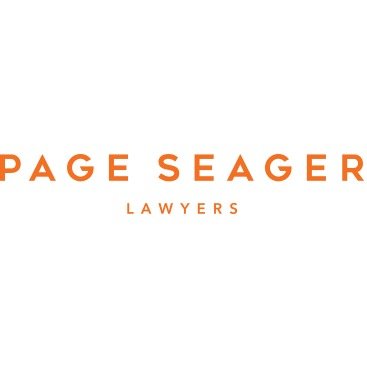Best Land Use & Zoning Lawyers in Hobart
Share your needs with us, get contacted by law firms.
Free. Takes 2 min.
Free Guide to Hiring a Real Estate Lawyer
List of the best lawyers in Hobart, Australia
About Land Use & Zoning Law in Hobart, Australia
Land Use and Zoning law in Hobart Australia regulates how the land in an area can be used. For instance, the law designates zones where residential, industrial or commercial activities may take place. Interpretation and enforcement of zoning regulations are handled by the local government, in this case, the Hobart City Council. These laws are designed to maintain harmony in the community, ensuring the design and use of land promote the wellbeing of the community and the environment.
Why You May Need a Lawyer
You may require a lawyer in various situations involving land use and zoning. For instance, if you plan to develop a piece of land, a lawyer can ensure you properly understand the zoning rules relevant to your project. Additionally, if you are facing enforcement action from the local government for a perceived violation, a lawyer can help defend your rights and find a resolution. Lawyers can also be instrumental when applying for a rezoning or variance in the use of your property.
Local Laws Overview
Local land use and zoning laws in Hobart encompass several dimensions. This includes residential, commercial and industrial zoning designations, subdivision rules, height limitations, heritage protections and special use permits. Additionally, local law respects the Tasmania State Policies and legislation such as the Land Use Planning and Approvals Act 1993. The Hobart Interim Planning Scheme 2015 is the key guiding document with specifics on the requiremenst and restrictions for different zones in Hobart.
Frequently Asked Questions
What are the common types of zones in Hobart?
Common zones include Low Density Residential, General Residential, Inner Residential, Central Business, Light Industrial, and Environmental Management. Each has specific regulations and limitations.
Can I change the zoning of my property?
Yes, it's possible, but you'll need to apply for a rezoning with the Hobart City Council. Approval is not guaranteed and depends on various factors, including alignment with broader planning strategies.
What is a land use conflict?
A land use conflict arises when the activity on one property negatively impacts neighboring properties. This is often resolved through responsive Land Use and Zoning laws or via conflict resolution processes.
What if I violate a zoning regulation?
If you violate a zoning regulation, you could face enforcement actions including fines or orders to cease the violation. If you believe the charge is in error, it is recommended to engage legal representation.
Where can I find more information about my property's zoning?
Your property’s zoning information can be found on the Hobart City Council’s website or directly contacting the Council.
Additional Resources
The Hobart City Council and the Tasmania Planning Commission are valuable resources for understanding land use and zoning laws. Additionally, the Environmental Defenders Office Tasmania provides legal advice relating to environmental matters inclusive of land use issues.
Next Steps
If you need legal assistance regarding land use and zoning law in Hobart, the first step is to find a qualified lawyer with expertise in this area. Prepare for your meeting with the lawyer by gathering all relevant documents such as notices, plans, property deeds, and any correspondence related to your situation. Be open and honest with your lawyer to ensure they can provide the best advice and representation.
Lawzana helps you find the best lawyers and law firms in Hobart through a curated and pre-screened list of qualified legal professionals. Our platform offers rankings and detailed profiles of attorneys and law firms, allowing you to compare based on practice areas, including Land Use & Zoning, experience, and client feedback.
Each profile includes a description of the firm's areas of practice, client reviews, team members and partners, year of establishment, spoken languages, office locations, contact information, social media presence, and any published articles or resources. Most firms on our platform speak English and are experienced in both local and international legal matters.
Get a quote from top-rated law firms in Hobart, Australia — quickly, securely, and without unnecessary hassle.
Disclaimer:
The information provided on this page is for general informational purposes only and does not constitute legal advice. While we strive to ensure the accuracy and relevance of the content, legal information may change over time, and interpretations of the law can vary. You should always consult with a qualified legal professional for advice specific to your situation.
We disclaim all liability for actions taken or not taken based on the content of this page. If you believe any information is incorrect or outdated, please contact us, and we will review and update it where appropriate.










